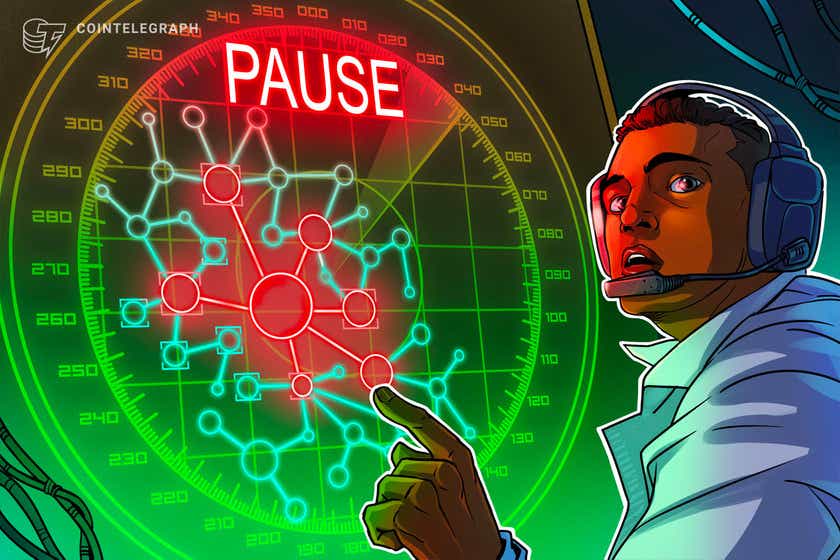Florida governor signs CBDC bill into law, restricting some uses of US and foreign CBDCs
The new law, signed by Governor Ron DeSantis, also urges other states to take action against the potential introduction of CBDCs through their commercial codes.
601 Total views
1 Total shares

Florida Governor Ron DeSantis signed a bill restricting the use of central bank digital currencies (CBDCs) in the state, according to local news sources. The governor urged state lawmakers in March to draft the bill.
The new law prohibits the use of a United States federal CBDC “as money within Florida’s Uniform Commercial Code (UCC).” It also bans the use of CBDCs issued by foreign governments and calls on other states to use their commercial codes to institute similar prohibitions.
At the signing ceremony for the bill, DeSantis said he was spurred into action by U.S. President Joe Biden administration’s studies of the new financial technology. The United States does not have a CBDC and there is no current plans to introduce one.
DESANTIS ANTI CBDC BILL JUST PASSED THE HOUSE & SENATE
I brought a select few of our members up to Floridas Capitol to meet with
The Governors Team
The Chief Financial Officers team
The Office of Financial Regulation
The anti-CBDC Bill SponsorsIn order for us to push… pic.twitter.com/vnMQxxVoUF
— Samuel Armes (Florida Blockchain Business Assoc.) (@samuelarmes) May 3, 2023
“I don’t think they would have done that if they don’t intend on implementing this,” he said. Were a U.S. CBDC to be issued, it would be “a massive transfer of power from consumers to a central authority.”
DeSantis also saw the potential introduction of a CBDC as a threat to cryptocurrency:
“I think they want to crowd out and eliminate other types of digital assets like cryptocurrency because they can’t control that so they don’t like that.”
The bill the governor signed introduced changes to the state’s currency commercial code. “You started to have a movement among the states to actually add CBDC to their Uniform Commercial Codes and this is something that was pushed by a lot of powers that be to do that,” he said, in an apparent reference to the proposed Article 12 of the UCC now before state legislatures. DeSantis added:
“We looked at that and said […] We are not going to add central bank digital currency to our commercial code, but we also said […] We need to add protections for Floridians against this, and so we’ll put in the Uniform Commercial Code that CBDC is something we don’t recognize.”
The Uniform Law Commission has taken pains to dispel the idea that it is encouraging the adoption of CBDC, even recently issuing a clarification on its position.
Related: North Carolina House passes bill banning CBDC payments to the state
John Montague of Florida-based Montague Law told Cointelegraph:
“This bill stipulates that transactions involving CBDCs won’t be afforded the usual UCC protections, potentially dissuading entities or individuals from engaging in such transactions with CBDCs.”
He added, “The UCC can establish obligations and alter third-party rights, even without their direct contractual involvement. Florida has the authority to alter this definition.”
The law takes effect on July 1.
Magazine: China’s 180M digital yuan airdrop, Devastation in Turkey, Laos’ CBDC: Asia Express








